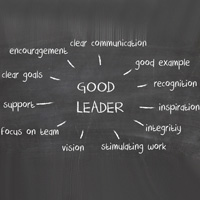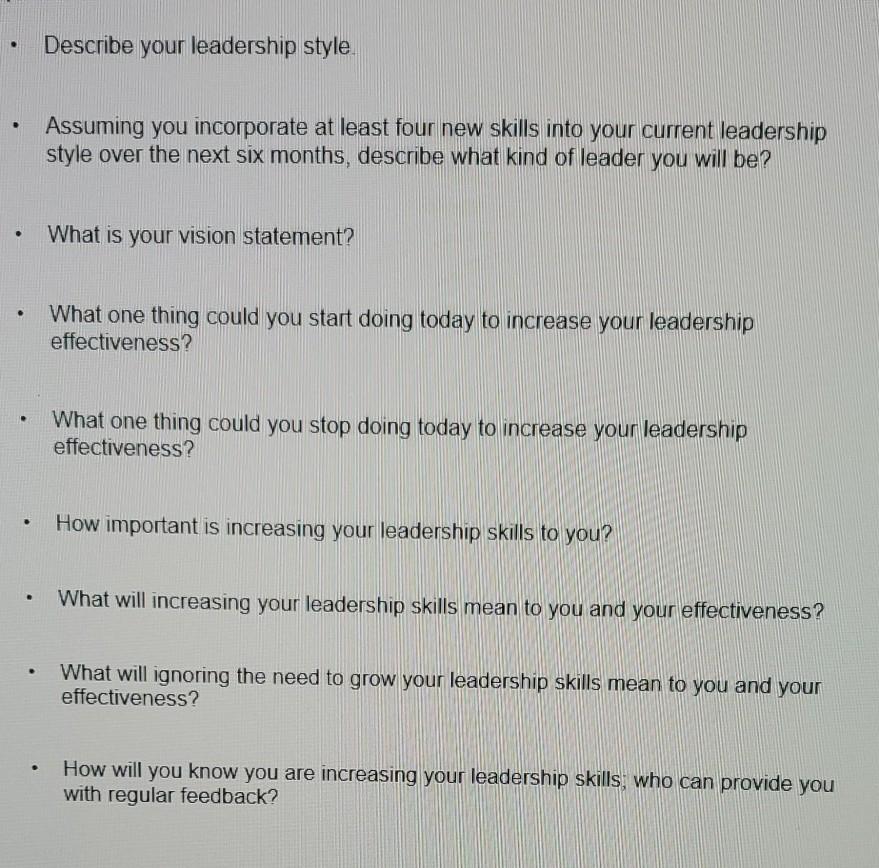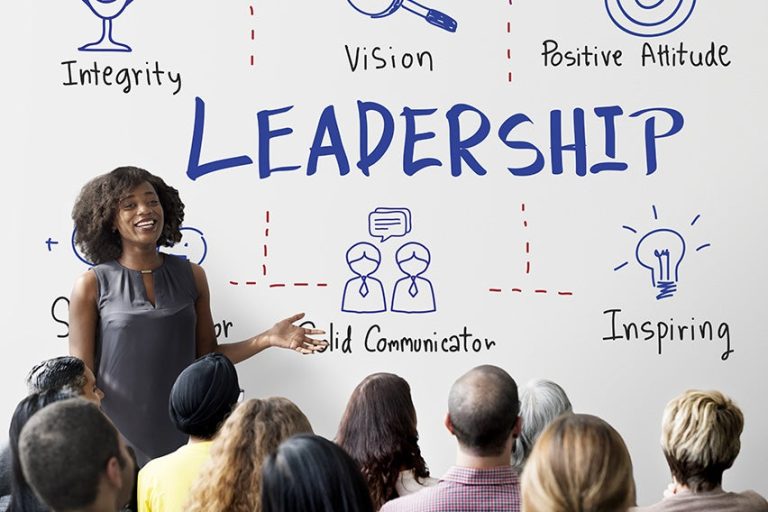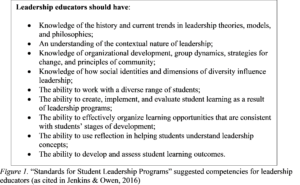How Would You Describe Your Leadership Skills?
I possess strong leadership skills, demonstrating effectiveness in guiding and inspiring teams towards achieving shared goals. As a leader, I am able to effectively guide and inspire teams towards achieving shared goals.
With my exceptional communication and interpersonal skills, I am able to build strong relationships with team members and motivate them to perform at their best. I believe in leading by example, and I am always willing to take ownership and responsibility for the outcomes of the team.
Adaptability is another key strength of mine, as I am able to quickly adjust to changing circumstances and find solutions to overcome challenges. By fostering a collaborative and inclusive work environment, I ensure that everyone’s ideas are valued and contribute to the overall success of the team.
What Are Leadership Skills?
Leadership skills refer to the abilities and qualities that enable individuals to guide, motivate, and influence others towards achieving common goals. Effective leaders possess a unique set of skills that allow them to communicate effectively, make sound decisions, inspire their team, and manage conflicts.
Definition Of Leadership Skills
Leadership skills can be defined as the aptitudes and competencies that individuals possess to effectively lead and influence a group of individuals towards a shared objective. These skills encompass a range of attributes including communication, problem-solving, decision-making, adaptability, and empathy.
Importance Of Leadership Skills
- Effective leadership skills have a direct impact on the success of an organization or team.
- Leadership skills contribute to improved collaboration, teamwork, and employee engagement.
- They drive innovation, creativity, and foster a positive and productive work environment.
- Strong leadership skills lead to better decision-making, problem-solving, and performance management.
- Leadership skills are essential in managing and resolving conflicts, promoting effective communication, and building strong relationships.
Leadership skills are not solely limited to those in formal leadership positions like managers or executives. They can be developed and utilized by individuals at all levels within an organization, as well as in various aspects of life such as community involvement or personal pursuits.
Having a strong set of leadership skills enables individuals to effectively lead and inspire others, making them valuable assets in any situation that requires coordination, motivation, and the ability to drive meaningful change.

Credit: www.cakeresume.com
Types Of Leadership Skills
Effective leadership involves a diverse set of skills that empower individuals to guide and inspire others towards common goals. As a leader, having a comprehensive understanding of different leadership skills allows you to adapt your approach and lead teams successfully in various situations. This article explores essential types of leadership skills that are crucial for any aspiring or established leader to hone.
Communication Skills
Clear and concise communication is key to effective leadership. Leaders must be able to articulate their vision, expectations, and goals to their team members so that everyone is on the same page. They also need to be active listeners, encouraging open dialogue and creating an atmosphere of trust.
Decision-making Skills
Leaders are often confronted with making important decisions that impact their team and organization. Strong decision-making skills involve assessing available information, considering potential outcomes, and making choices that align with the overall mission and objectives. Decisive leaders inspire confidence and can guide their team through uncertain situations.
Motivational Skills
A motivated team is a productive team. Leaders should possess the ability to inspire and motivate their team members, fostering enthusiasm and a sense of purpose. Recognizing individual strengths, providing constructive feedback, and setting achievable goals are important components of effective leadership.
Problem-solving Skills
Leaders are frequently confronted with challenges and obstacles. Strong problem-solving skills enable leaders to analyze complex situations, identify potential solutions, and make informed decisions. They encourage creativity and innovation within their teams, ensuring that problems are addressed proactively and opportunities for growth are recognized.
Delegation Skills
Effective leaders understand the importance of delegating tasks to their team members. Delegation skills involve assigning responsibilities, empowering others to take ownership, and providing necessary support. Delegating tasks not only allows leaders to focus on overarching goals but also promotes growth and development within the team.
Assessing Your Leadership Skills
Assess and describe your leadership skills effectively by evaluating your ability to motivate, communicate, and delegate responsibilities. Gauge your aptitude for problem-solving, critical thinking, and decision-making, showcasing your adaptable and confident leadership style.
Assessing your leadership skills is a crucial step towards personal and professional growth. It allows you to gain a deeper understanding of your strengths and weaknesses, paving the way to becoming a more effective and influential leader. By engaging in self-reflection, seeking feedback from others, and identifying your strengths and weaknesses, you can develop a clearer picture of where you stand as a leader.
Self-reflection
Self-reflection is a powerful tool for assessing your leadership skills. It involves taking a step back to examine your own behaviors, actions, and decisions as a leader. Carving out dedicated time for self-reflection allows you to identify patterns, evaluate your effectiveness in different situations, and gain insights into your leadership style.
Key questions to ask yourself during self-reflection:
- What are the qualities and values that define my leadership style?
- How do I react to and handle challenges and conflicts?
- Am I able to effectively communicate and inspire my team?
- In what areas do I excel as a leader, and where can I improve?
Feedback From Others
Seeking feedback from others is an invaluable way to gain different perspectives on your leadership skills. It provides insight into how your leadership is perceived, and can reveal blind spots you may have overlooked. Feedback from colleagues, team members, mentors, or even trusted friends and family can provide valuable information for enhancing your leadership abilities.
Tips for gathering feedback:
- Ask for specific and constructive feedback.
- Create a safe and open environment for honest communication.
- Actively listen to the feedback and avoid becoming defensive.
- Consider feedback from multiple sources to gain a well-rounded view.
Identifying Strengths And Weaknesses
Identifying your strengths and weaknesses is essential for continuous improvement and growth as a leader. Recognizing and leveraging your strengths can help you maximize your impact, while identifying and addressing your weaknesses allows you to develop and refine your leadership skills.
Approaches to identifying strengths and weaknesses:
| Strengths | Weaknesses |
|---|---|
| Reflect on past achievements and positive feedback received. | Seek feedback on areas where you can improve. |
| Consider innate abilities and talents that contribute to your leadership. | Reflect on challenges or areas where you feel less confident. |
| Observe the impact of your actions on team dynamics and outcomes. | Identify areas where you may require additional training or support. |
Taking the time to assess your leadership skills through self-reflection, gathering feedback from others, and identifying your strengths and weaknesses empowers you to proactively enhance your leadership abilities. Embracing this continuous improvement mindset will not only benefit you but also positively impact those you lead, fostering collaborative and successful professional relationships.

Credit: www.pinterest.com
Developing Leadership Skills
Developing leadership skills is an ongoing process that requires continuous learning and development. As a leader, it is crucial to constantly improve your skills and adapt to changing environments to effectively lead your team towards success.
Continuous Learning And Development
Continuous learning is an essential aspect of leadership growth. It involves actively seeking new knowledge and staying up to date with current trends and best practices. By dedicating time for self-improvement, leaders can expand their knowledge base and acquire new strategies to tackle challenges.
Leaders can engage in continuous learning by attending industry seminars, conferences, and workshops. These events provide opportunities to learn from industry experts and network with other leaders. Additionally, reading books, joining leadership development programs, and seeking feedback from colleagues can also contribute to continuous learning.
Seeking Opportunities For Leadership
Seeking opportunities for leadership is another vital way to develop and refine your skills. Taking on new challenges and responsibilities helps leaders gain valuable experience and expand their leadership capabilities. By actively seeking out projects or initiatives that require leadership, you can grow your skill set and demonstrate your ability to lead effectively.
It is important to volunteer for leadership roles within your organization or community. These opportunities not only allow you to apply your existing skills but also push you to develop new ones. By embracing challenges and stepping outside of your comfort zone, you can enhance your leadership skills and build confidence.
Practicing Effective Leadership
Practicing effective leadership involves implementing your knowledge and skills in real-world situations. It requires putting theory into action and adapting your leadership style based on the needs of your team and the circumstances at hand.
To practice effective leadership, prioritize clear communication, active listening, and transparency. Encourage open and honest discussions, delegate tasks effectively, and provide constructive feedback. Create an environment that fosters collaboration, innovation, and inclusivity.
Leaders should also focus on self-awareness and emotional intelligence. Understanding your strengths and weaknesses empowers you to make better decisions and empathize with your team members. By continually assessing your leadership approach and seeking feedback, you can refine your skills and cultivate a positive work environment.
Building Relationships And Networks
Building relationships and networks is a crucial aspect of leadership development. Strong connections with colleagues, mentors, and industry professionals can provide guidance, support, and opportunities for growth.
To build relationships and networks, actively engage with others through professional networking events, social media platforms, and online communities. Seek mentorship from experienced leaders who can offer guidance and share valuable insights. Collaborate with peers on projects and leverage their expertise.
It is also essential to be a supportive leader and foster positive relationships within your team. Encourage teamwork, recognize individual achievements, and create a culture of trust and respect. Building strong connections not only enhances your leadership abilities but also opens doors to new opportunities and perspectives.
Showcasing Your Leadership Skills
One way to showcase your leadership skills is by effectively communicating goals and expectations to team members, fostering a strong sense of collaboration and motivation. Additionally, demonstrating the ability to make sound decisions, handle conflicts, and adapt to changing circumstances highlights your leadership capabilities.
Demonstrating Leadership In The Workplace
When it comes to showcasing your leadership skills, one of the most important aspects is demonstrating how you have effectively displayed leadership in the workplace. This can be done through various means, including:
- Leading by example: As a leader, it is crucial to set a positive example for your team. By consistently displaying professionalism, integrity, and a strong work ethic, you can inspire others to follow in your footsteps.
- Delegate tasks and empower others: A true leader knows that they can’t do everything on their own. By delegating tasks to team members, you not only alleviate your workload but also demonstrate trust and confidence in their abilities.
- Effective communication: Communicating clearly, openly, and effectively is an essential leadership skill. Whether it’s providing feedback, giving instructions, or resolving conflicts, being able to communicate with precision and empathy is crucial.
- Decision-making: Leaders are often faced with tough decisions. Being able to make informed decisions that align with the company’s goals and values is a skill that stands out. This includes considering different perspectives, analyzing data, and weighing potential risks.
Highlighting Leadership Accomplishments
Another way to showcase your leadership skills is by highlighting specific accomplishments that demonstrate your effectiveness as a leader. This can be achieved by:
- Detailing successful projects: Whether it’s leading a cross-functional team or implementing a new process, highlighting the outcomes of projects you led can provide tangible evidence of your leadership abilities.
- Quantifying results: Numbers speak louder than words. If your leadership contributed to improved performance, increased revenue, or cost-saving measures, be sure to include these metrics to strengthen your case.
- Recognition and awards: If you have received any accolades or recognition for your leadership, be sure to mention them. This can include awards, promotions, or positive feedback from superiors or colleagues.
Using Examples During Interviews
During interviews, leveraging specific examples is essential in demonstrating your leadership skills to potential employers. Here’s how:
- Prepare stories: Prior to the interview, identify specific instances where your leadership skills shined. Craft these stories by outlining the challenge, the actions you took, and the positive outcomes that resulted.
- Showcasing adaptability: Describe situations where you successfully adapted your leadership style to fit the needs of a diverse team or a changing environment. This demonstrates your ability to be flexible and empathetic.
- Conflict resolution: Illustrate instances where you efficiently resolved conflicts by actively listening, mediating, and finding mutually beneficial solutions. Effective conflict resolution is a valuable leadership skill.
- Lessons learned: Share stories of any mistakes or setbacks you encountered as a leader and explain how you learned from them. Displaying humility and a growth mindset is highly regarded by employers.

Credit: online.ben.edu
Frequently Asked Questions For How Would You Describe Your Leadership Skills?
How Would You Describe Your Leadership Skills?
Leadership skills can be characterized by effective communication, strategic thinking, and the ability to inspire and motivate others.
What Are The Key Qualities Of A Good Leader?
A good leader exhibits qualities such as integrity, empathy, adaptability, and the ability to delegate and empower team members.
How Can I Develop My Leadership Skills?
Develop your leadership skills by seeking feedback, taking on new challenges, learning from mentors, and investing in personal growth and development opportunities.
Conclusion
Effective leadership involves a combination of self-awareness, adaptability, and effective communication. Leadership skills are not limited to a single style, but rather encompass a range of attributes that enable individuals to motivate, guide, and inspire others towards a common goal.
By continuously honing these skills and seeking opportunities for growth, individuals can strengthen their ability to lead with confidence and positively impact their teams and organizations.


